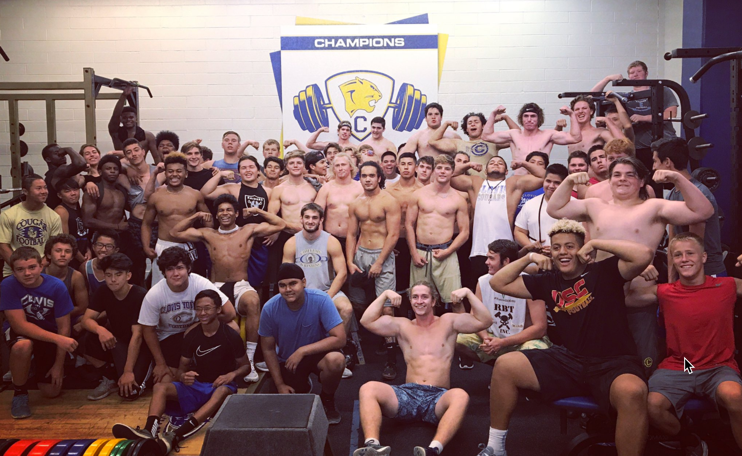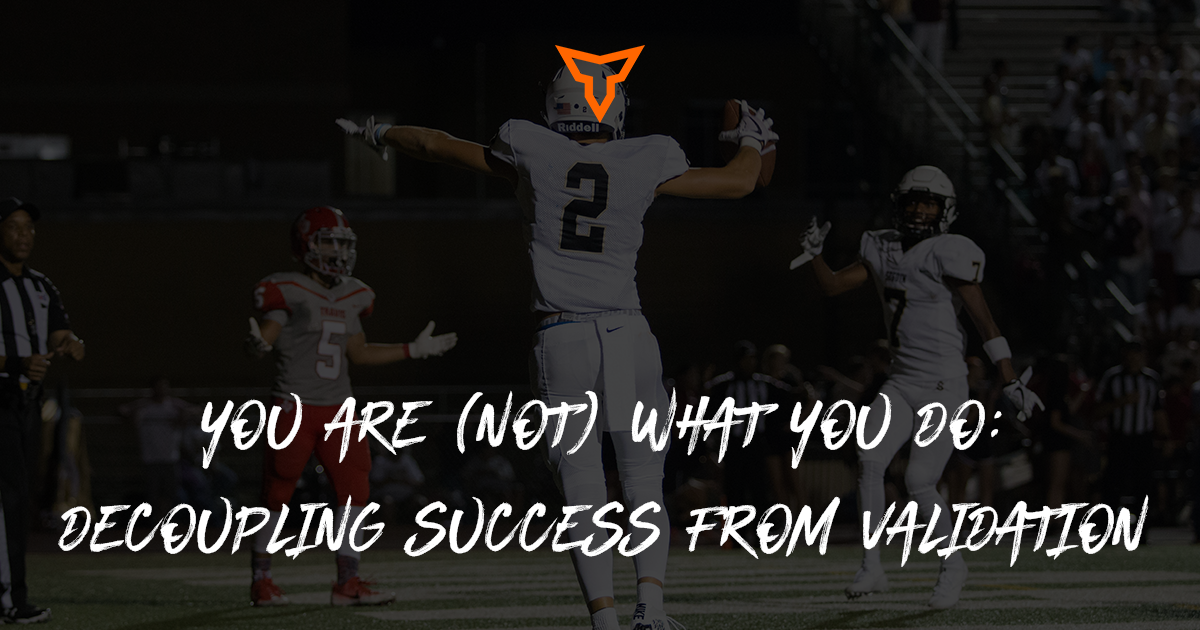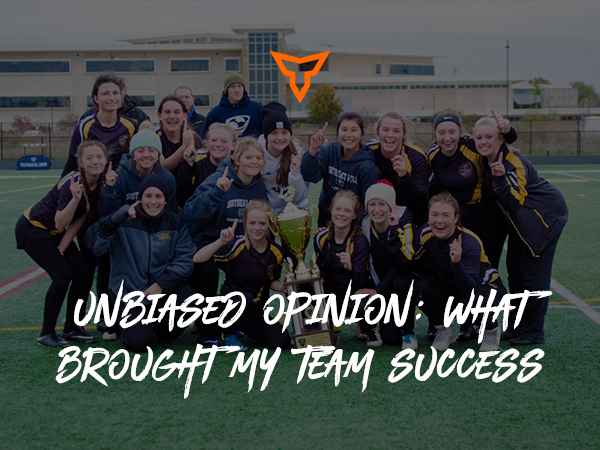We asked our coaches to share what fuels their passion and keeps them going. Want to be part of the series? Email us at marketing@teambuildr.com!
Tell me about the moment you knew you wanted to be a coach. What was it that drew you to this profession, and what keeps you passionate about it today?
As I grew up, I always loved playing sports. Once I started taking them more seriously in high school, I learned more about physical training and the benefits of strength & conditioning for athletic performance. Through this process of finding programs online, reading articles, and watching YouTube videos, I fell in love with the “offseason” and getting better outside of sports to help with my sports.
As I completed high school and pursued junior hockey, I knew that I wanted to be a coach and teach others at some point in my life. Once I went to University at Trinity Western University to pursue my Human Kinetics degree, I met my first Strength & Conditioning Coach, Andrew Heming. After working with him as an athlete and then an intern I realized that this is something I wanted to dedicate my life to and pursue to the best of my ability. The way he made me believe in myself and selflessly gave of his time and knowledge to help me get better even though I wasn’t a high-profile recruit made me want to be like him.
I love being able to help athletes get better without the pressure of playing time or having to cut players. It brings me so much joy getting to instill confidence, work ethic, and other valuable life skills along with helping athletes achieve their dreams. As the great Johnny Parker always says “Make them feel special”, and that is something that I have found great joy in and keeps me hungry to get better for the athletes I work with.
Coaching often involves a lot of behind-the-scenes work. What are some of the most rewarding moments that might go unnoticed by others, but that mean the most to you?
For me, I love the behind-the-scenes work. Don’t get me wrong, I love being in the spotlight and being the “hero” as much as the next guy, but it is the little things that we do as S&C coaches that people don’t notice that mean the most. For example, I love working with athletes on their rehab or recovery work. While sometimes tedious, it is a good challenge and fun to work with our therapy team to come up with a plan that works for the athlete to come back better than ever. Then when they go back out on the field/court/ice/track and can perform at their best pain-free, that is such a rewarding feeling.
Another one I love is simple ways to “Make them feel special” as I mentioned before. This includes wishing athletes happy birthdays, remembering their favourite playlists, or wishing them good luck on an exam they have coming up that they forgot they told you about. It is these little ways of showing you care that are super fun to do and help with buy-in and trust in the weight room too, so it’s a win-win!
One of my favourite behind-the-scenes stories happened a few years ago. I had recently taken over the programming for our track & field team from their assistant coaches. Not that what they were doing was “bad” or “wrong”, but wasn’t what I would have done. So once I had control of their programming I started implementing more basic training methods that I think they needed. Then one day over that next summer, one of our sprinters texted me bragging that he beat a 3-year-old PB over the weekend. That made me feel pretty good, even though no one else knew or attributed it to the work we did (and not that it was all me, but I believe it did help, and it was cool to see he did too).
How do you see your role as a coach influencing the lives of your athletes/clients beyond their performance? What life lessons do you hope they take away?
This is one of my favourite topics. Every week I give our athletes a “Tip of the Week” to start their first session of the week. These range in topics from nutrition to training tips, to motivational talks. More often than not I drift towards the motivational ones because I find they are the most fun to give and athletes respond well to them. I enjoy using analogies to teach life lessons through stories that these athletes will remember for a long time. While I could write a book on all the analogies I’ve used and come across, they all teach valuable lessons in life or training such as time management, effort, caring about the team, communication, and commitment to what you said you are going to do. They are fun to give because I often come up with a catchy phrase to use as a quick reminder for athletes and I will use those later in the semester to remind them of what we talked about and what is expected of them.
I am at the stage now where I have athletes who are getting married after graduation and sending me some messages saying “thank you” for teaching them some of these values because the things they learned in their lift sessions in our weight room have transferred over to their daily life as a spouse and working adult. Pretty cool when that happens.
Coaching can be demanding. What are some of the biggest challenges you face in your daily work, and how do you overcome them?
Coaching for sure is tough. One of my biggest challenges is caring about people that don’t reciprocate the relationship. For example, I devote many hours to thinking about how to get the best for my athletes. Then sometimes they forget about lifting or just skip it altogether. That is a very hard feeling to go through, giving so much but not having it stick with certain people like that. Can be super frustrating for sure.
The way I overcome that is just to keep going, to keep caring, and to keep showing them I care for them and have their best interest in mind every chance I can. I will send emails to check in with athletes and remind them about lifts, and I’ve even handwritten notes to certain athletes. This doesn’t happen all the time (thankfully), but when athletes skip or miss a lift, I think it is important to remind them of their commitment, but still care for them as a person and make sure they know you are there for them. It is all about having high standards, but also high levels of support so they can get the job you are asking of them done. Being a university athlete is tough and very time demanding. There is so much pulling you in various directions, so it is important to be firm, and have set standards but also be empathetic and forgiving.
For example, I once had an athlete in my office stressed out and crying. She was thinking about dropping out and quitting her sport. I gave her some advice and did my best to talk to her about the options and prayed for her. Long story short, she stayed, started for our team that season, and went on to play a year professionally after.
How has your coaching evolved, and how do you expect it to keep evolving?
My coaching has thankfully changed a lot. Not that I don’t think I wasn’t good before, but I think coaches should always be learning and striving to improve their game so they can continue to help their athletes and clients more, so I am happy to say that I have changed a bunch. There are a ton of X’s and O’s things I have changed, such as new exercises, go-to set and rep schemes, etc but from a philosophy standpoint I have learned to be more adaptable. COVID kind of forced that upon me, but having the ability to adapt to changing situations and not be so “my way or the highway” has served me well in dealing with 17-25-year-old athletes who have a lot going on. I’ve learned that it is all about making sure they know you care and gaining their trust is way more important than writing perfect programs.
That being said, I know I need to continue to develop my programs to give my athletes the best adaptations possible. I know that I need to level up my rehab game and start to dive more into how to individualize on a global scale with lots of athletes, which I look forward to sinking my teeth into in the coming years to round out my programs and coaching!
Subscribe to our blog
Subscribe to receive the latest blog posts to your inbox every week.
Related posts

What Strength Coaches Should Do Behind the Scenes

You Are (Not) What You Do: Decoupling Success from Validation


